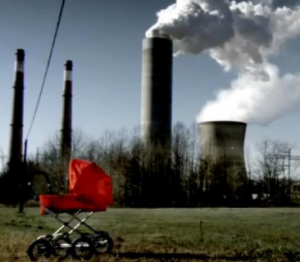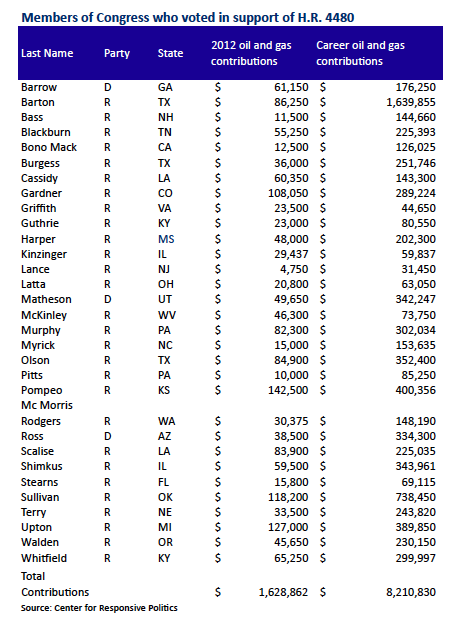Asthma, Baby, Asthma: House Energy Committee Eliminates Protection From Smog
 Last year, the House Republican majority cast 191 votes to weaken safeguards for our air, land, water, and climate. Their efforts to shred these protections continued yesterday when the House Energy and Commerce Committee passed two bills that would block protections from air pollution while allowing more oil drilling — all under the guise of “lowering gas prices.”
Last year, the House Republican majority cast 191 votes to weaken safeguards for our air, land, water, and climate. Their efforts to shred these protections continued yesterday when the House Energy and Commerce Committee passed two bills that would block protections from air pollution while allowing more oil drilling — all under the guise of “lowering gas prices.”Both bills passed the committee on mostly party line votes.
The first bill was the Gasoline Regulations Act of 2012, H.R. 4771, sponsored by Energy and Power Subcommittee Chair Ed Whitfield (R-KY). This bill would eliminate the bipartisan mandate under the Clean Air Act that the Environmental Protection Agency set health standards for ozone (or smog) pollution based only on the best medicine and science. Instead, for the first time ever under this bill, the cost of pollution reduction would determine how much health protection to require. In other words, air pollution that triggers asthma attacks and respiratory diseases would only be reduced if the polluters could afford it.
In addition, the bill would require endless study of other possible pollution reduction requirements, using “paralysis by analysis” to block additional health protections. H.R. 4771 would slash these safeguards even though “more than 40 percent of people in the U.S. still live in areas where air pollution threatens their health,” according to the American Lung Association.
The committee also passed the Strategic Energy Production Act, H.R. 4480, authored by Rep. Cory Gardener (R-CO). This bill would force increased drilling on public lands any time reserve oil is released from the Strategic Petroleum Reserve (SPR). The SPR was designed to supply oil in case of a supply disruption, though President George H. W. Bush and the 104th Congress under Speaker Newt Gingrich (R-GA) sold reserve oil in anticipation of a disruption that did not occur, and to reduce the federal budget deficit, respectively.
This bill might inhibit the president from selling reserve oil in the wake of supply disruption, but it does nothing to lower oil prices since they are set on a world market and controlled by the Organization of the Petroleum Exporting Countries (OPEC) cartel.
In fact, the Associated Press analyzed 35 years of domestic oil production and gasoline price data and determined that there is “no statistical correlation between how much oil comes out of U.S. wells and the price at the pump.”
During the debate on these bills, Ranking Democrat Henry Waxman (D-CA) reminded committee members that even witnesses called by Republicans understood that this legislation would not reduce gasoline prices. He noted that “every expert at our hearings on gas prices, including the Republican’s own witnesses – told us that gasoline prices are driven by world oil prices.”
Not surprisingly, the members who support these bills took millions of dollars from the oil and gas industry. The Energy and Commerce Committee members received almost $10.5 million in lifetime campaign donations from the oil and gas industry, according to data from the Center for Responsive Politics. Over 75 percent of these dollars – $7.7 million – have gone to 31 of the 33 committee Republicans. On average, Republican committee members received three times the contributions from the oil and gas industry than Democrats in the 2011-2012 election cycle.


This legislation is the beginning of a summer campaign to promote fossil fuels and tear down public health protection. On Wednesday, the House Natural Resources Committee passed three bills to encourage oil and gas drilling on public lands — even while more than half of onshore and offshore leases for the oil industry sit idle.
House Majority Whip Kevin McCarthy (R-CA) announced a series of “jobs and energy tours” that members will be conducting in their districts during next week’s recess. McCarthy also warned that more anti-public health bills will be coming onto the House floor in June.
As we continue to see house Republicans fulfilling Big Oil’s wish list, it begs the question: are our elected officials making decisions in Americans’ best interest, or are they letting Big Oil call the shots?
You can return to the main Market News page, or press the Back button on your browser.

